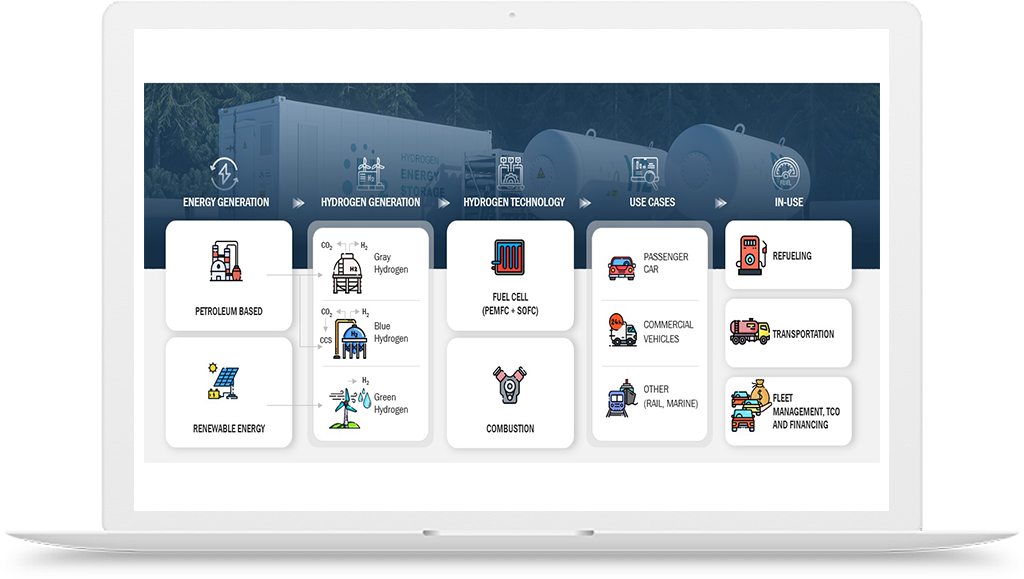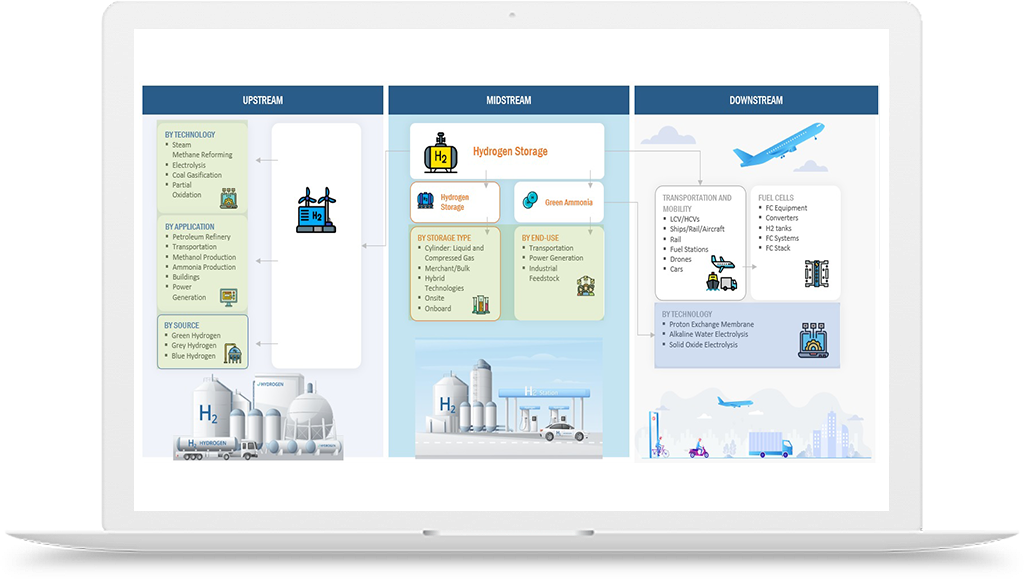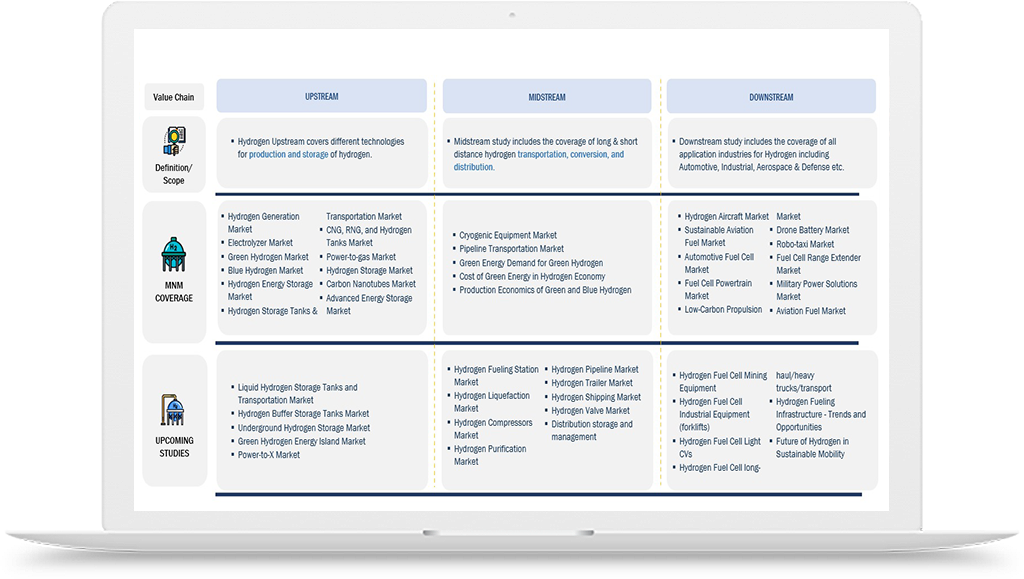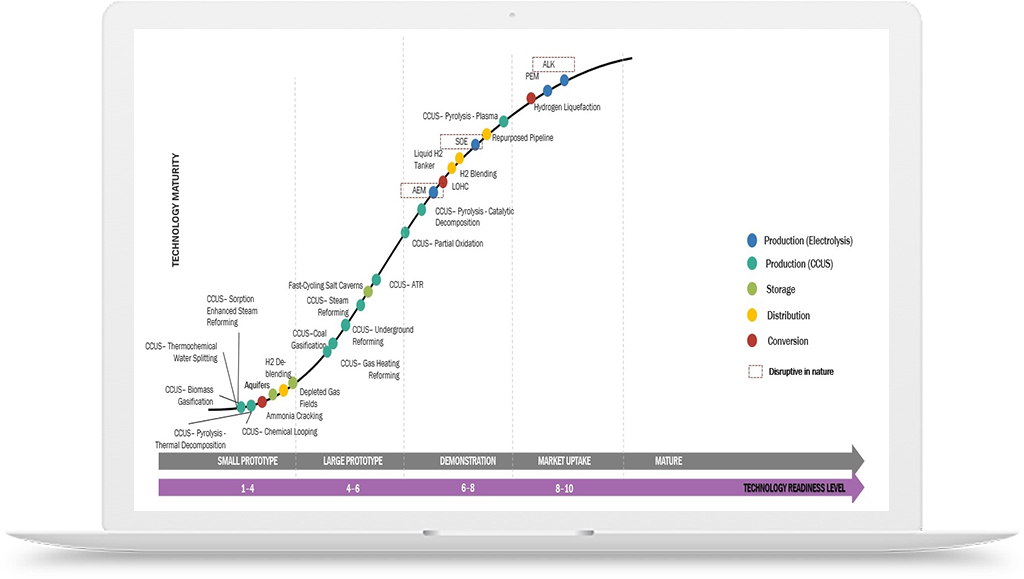Opportunities for Saudi Arabia in Hydrogen Market
The hydrogen market may be threatened as well as offered by the Gulf Cooperation Council (GCC) and other oil-rich nations. Let's investigate the possible dynamics and Opportunities for Saudi Arabia in Hydrogen Market:
-
Threats:
Dependence on Oil: Historically, the GCC nations have relied on the export of gas and oil to maintain their economies. The market for hydrogen, especially green hydrogen, presents a threat to the demand for fossil fuels and may have an effect on their current sources of income.
Competing Interests: Because the switch to hydrogen energy could threaten their established energy infrastructure and market supremacy, oil-rich countries may place a higher priority on defending their oil interests.
-
Opportunities:
Rich Renewable Resources: The GCC, which includes Saudi Arabia, has a large number of solar and wind energy resources that can be used to produce green hydrogen. They may become industry leaders in hydrogen generation and renewable energy by making use of these resources.
Economic Growth and Diversification: Oil-rich nations can lessen their reliance on oil by diversifying their economies through investments in the hydrogen market. It offers a chance to grow new markets, provide employment, and draw capital to renewable energy and hydrogen-related sectors.
Strategic Position: GCC countries can leverage their geographical advantage, serving as potential hubs for hydrogen production, storage, and export, given their proximity to key markets in Europe and Asia.
With regard to green hydrogen and the larger energy transition, Saudi Arabia in particular has stated its desire to take the lead. A number of agreements and initiatives have been established to create green hydrogen projects, and the nation has tremendous potential for renewable energy. Say for example of Opportunities for Saudi Arabia in Hydrogen Market:
NEOM: The goal of Saudi Arabia's NEOM project is to build a carbon-neutral city using renewable energy sources, including the creation and use of hydrogen.
The Helios: Green Fuels project seeks to expand the hydrogen industry by utilizing renewable energy to manufacture green hydrogen and ammonia in collaboration with global businesses.
Despite Saudi Arabia's significant commitments, it is important to remember that there is fierce competition in the global hydrogen industry and that other nations and regions are also actively pursuing green hydrogen programs. Saudi Arabia and the GCC will play a leading role in the hydrogen industry if they can effectively use their resources, push technological developments, create benevolent regulatory environments, and get access to markets for hydrogen exports.
Few examples of business initiatives and partnerships Opportunities for Saudi Arabia in Hydrogen Market:
-
Air Products and ACWA Power (Saudi Arabia):
The world's largest green hydrogen plant will be built, owned, and operated in Saudi Arabia by a joint venture between global hydrogen provider Air Products and Saudi-based developer ACWA Power. Utilizing sustainable energy sources, the facility seeks to generate more than 650 tons of green hydrogen daily.
-
The German companies Siemens Energy and Siemens Mobility:):
Rail transport infrastructure powered by hydrogen is being developed in conjunction by Siemens Energy and Siemens Mobility. To help decarbonize rail transportation, they are developing a project to install infrastructure for hydrogen refueling and incorporate hydrogen fuel cells into trains.
-
Nikola Motor Company (United States):
With the goal of providing zero-emission solutions for the transportation sector, they have collaborated with major players in the industry, including General Motors and Bosch, to develop hydrogen fuel cell technology for heavy-duty vehicles.
-
Ørsted and BP (Denmark/United Kingdom):
Together, BP, a significant oil and gas firm, and Ørsted, a leading provider of renewable energy, are building a massive hydrogen generation plant in Germany. The project's goal is to use offshore wind power to manufacture green hydrogen, which will help the hydrogen industry expand.
-
Hyundai and Saudi Aramco (South Korea/Saudi Arabia):
Hyundai Motor Company and Saudi Aramco, the biggest oil exporter in the world, have inked a memorandum of understanding to work together on projects pertaining to hydrogen. In order to promote the use of hydrogen technologies, this collaboration attempts to investigate potential in hydrogen generation, distribution, and consumption.
These illustrations show how companies are positioning themselves in the hydrogen market strategically, establishing alliances, and funding initiatives including the production, transportation, and use of hydrogen. Through these partnerships, businesses can more quickly develop and commercialize hydrogen innovations, which in turn helps to expand the hydrogen industry. They also allow enterprises to pool their resources and experience.
















